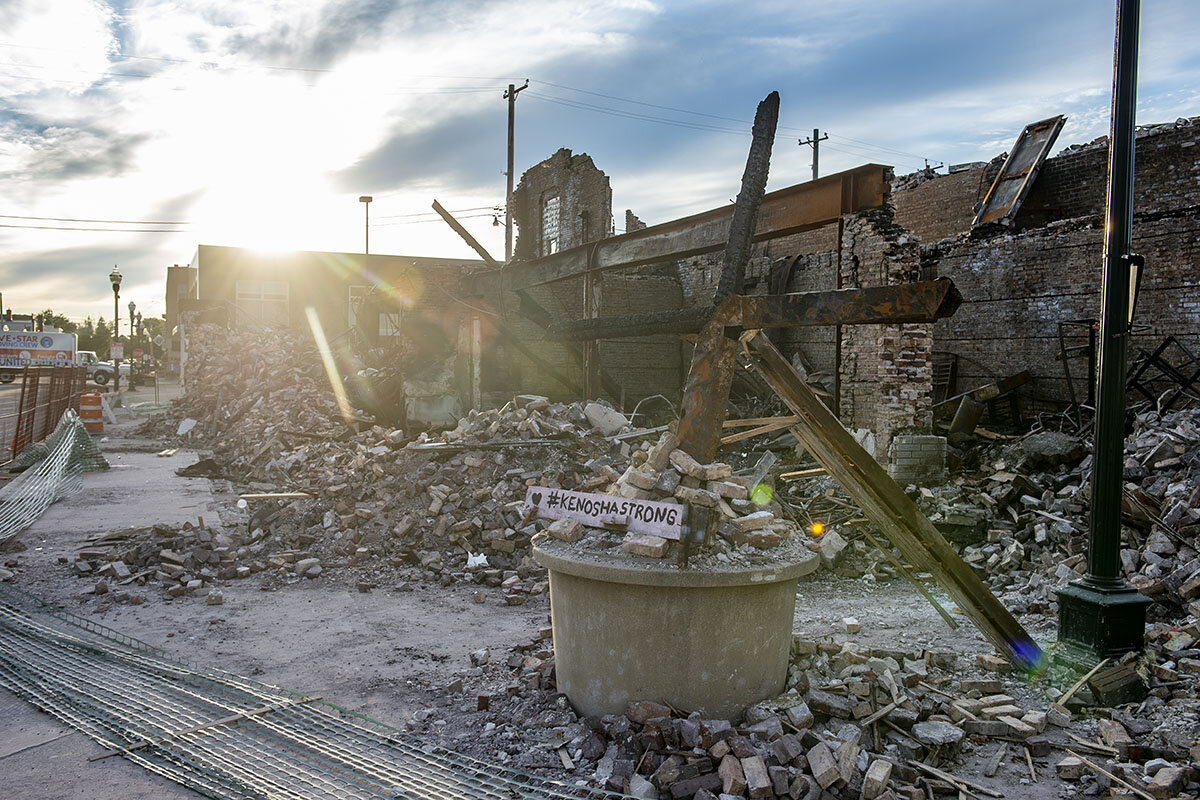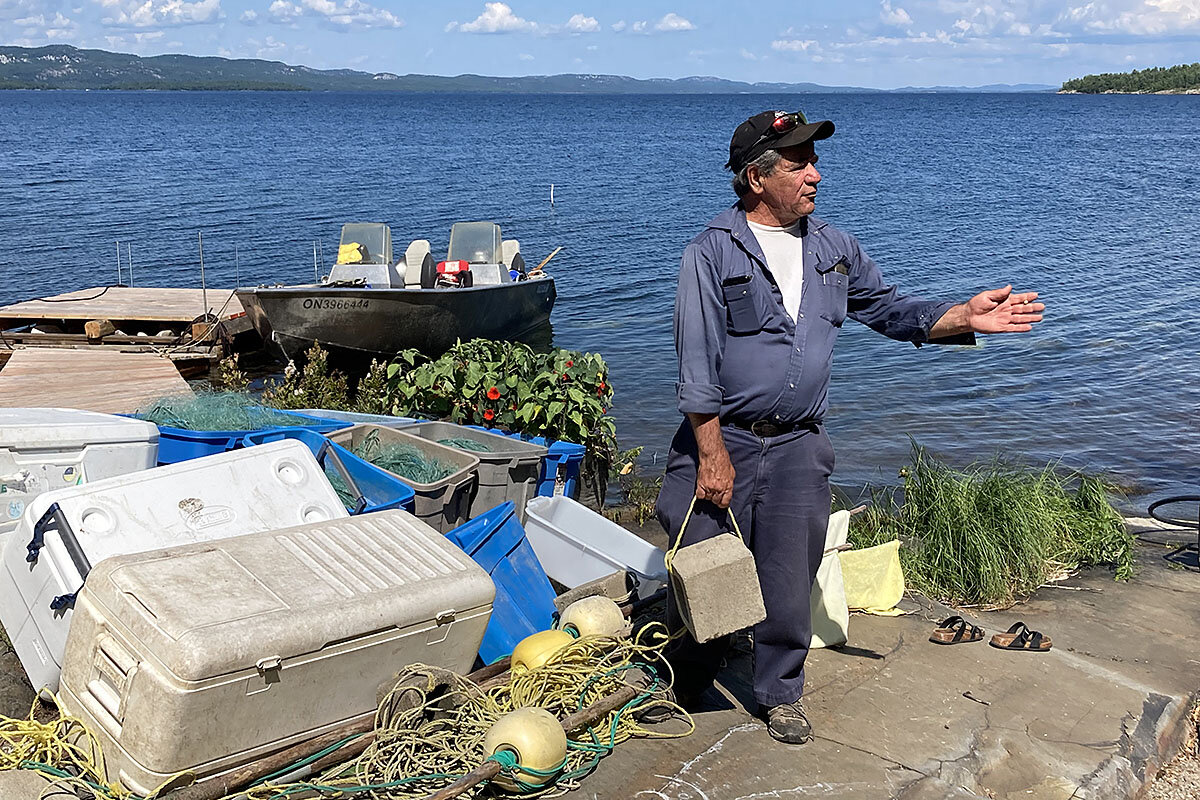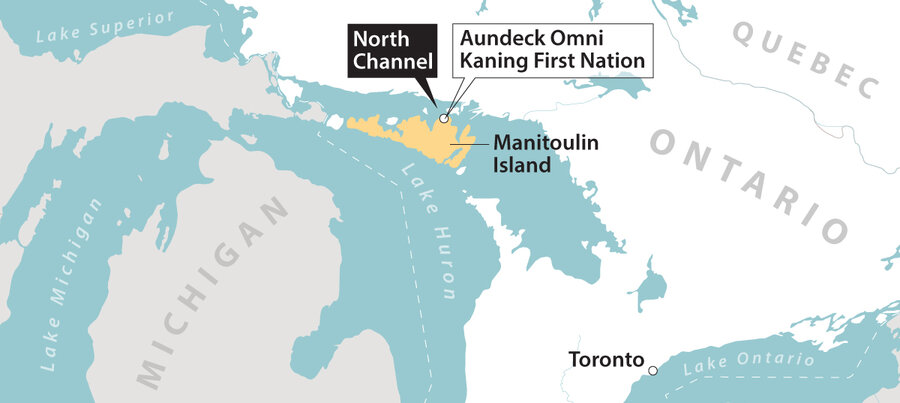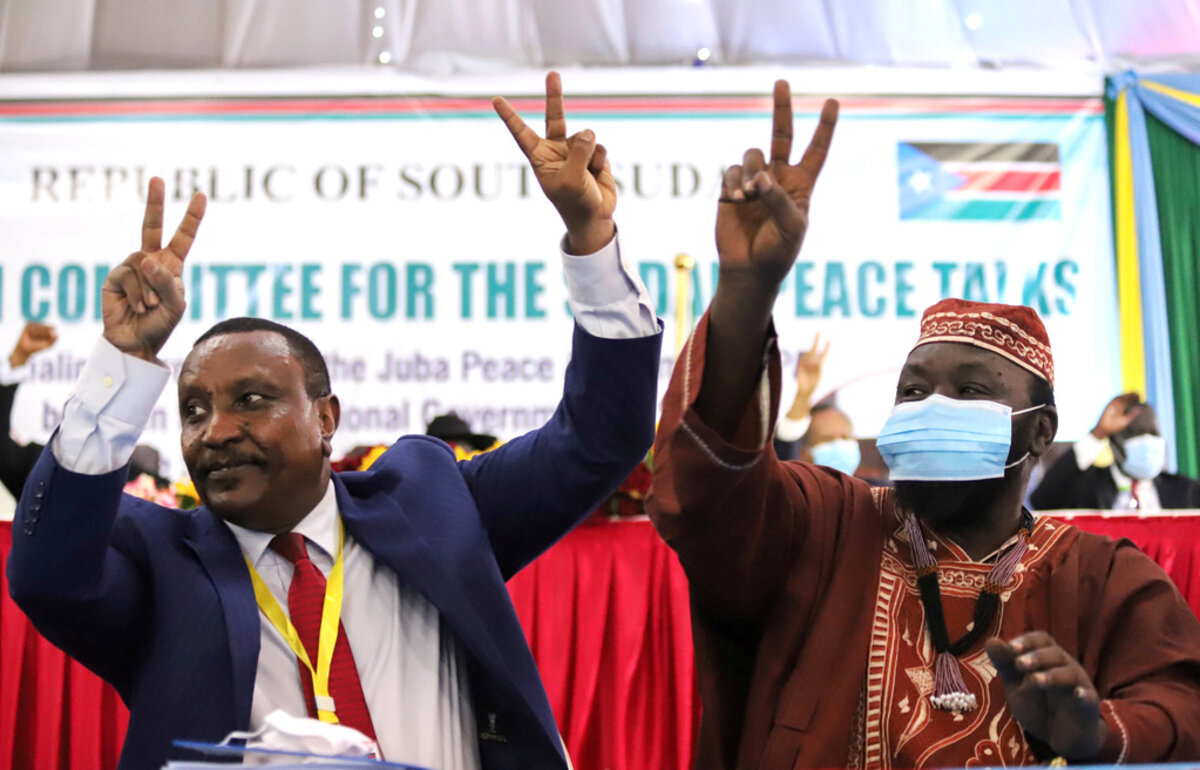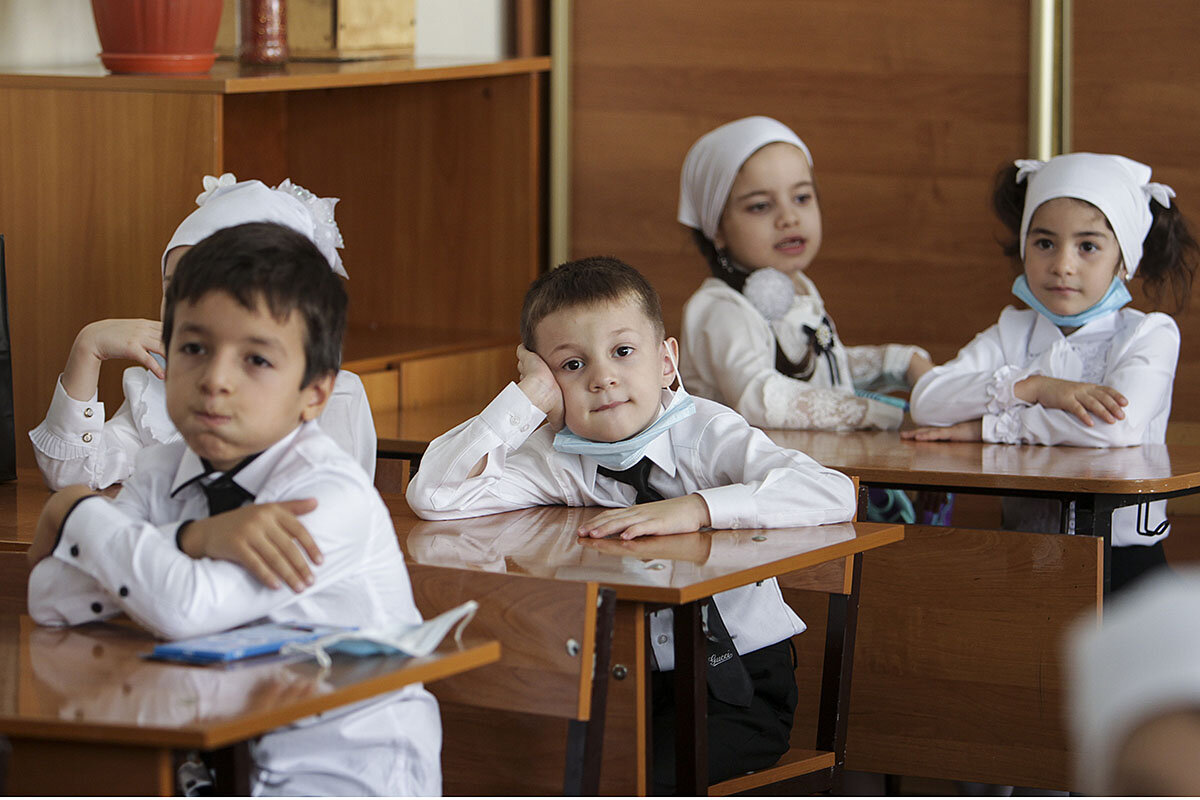The world’s picture of Kenosha, Wisconsin, is of the city set ablaze by riots after the police shooting of Jacob Blake. Today, its streets show the nuance of America’s racial narrative and the humanity that is never extinguished.
Monitor Daily Podcast
- Follow us:
- Apple Podcasts
- Spotify
- RSS Feed
- Download
 Mark Sappenfield
Mark Sappenfield
Last week, as the emotion of the police shooting of Jacob Blake swept through America, many sports teams paused. Some leagues held temporary strikes. Others canceled practices. For many, deep conversations happened.
The one inside the Indianapolis Colts locker room was familiar. Black players like linebacker Zaire Franklin and quarterback Jacoby Brissett shared what it is like to be Black in America – always under suspicion, constantly feeling threatened by those employed to protect you.
Then Ryan Kelly stepped in – and spoke for the police. His father was an officer for 30 years, and this year the Colts’ center was keynote speaker at a Concerns of Police Survivors ball, held for officers killed in the line of duty. He spoke of the good cops he knew and the misunderstanding he saw. And his teammates listened.
“I’ve had conversations that I never thought I would have with Ryan,” Brissett told The Athletic. “He’s provided tremendous insight and he’s provided ideas that, honestly, I would have never thought of. ... He’s opened eyes and, I think, vice versa.”
Sports can inspire and amaze. But they can also teach, and on a team where a white cop’s son is employed to defend from opponents a Black man who has spoken out in support of Black Lives Matter, the lessons are larger than X’s and O’s. Said coach Frank Reich: “The way our team handled that was the way it should be handled: with respect, listening, and it was a two-way street. And it requires a maturity that’s beyond your years to hang with it and get deeper into the discussion.”




